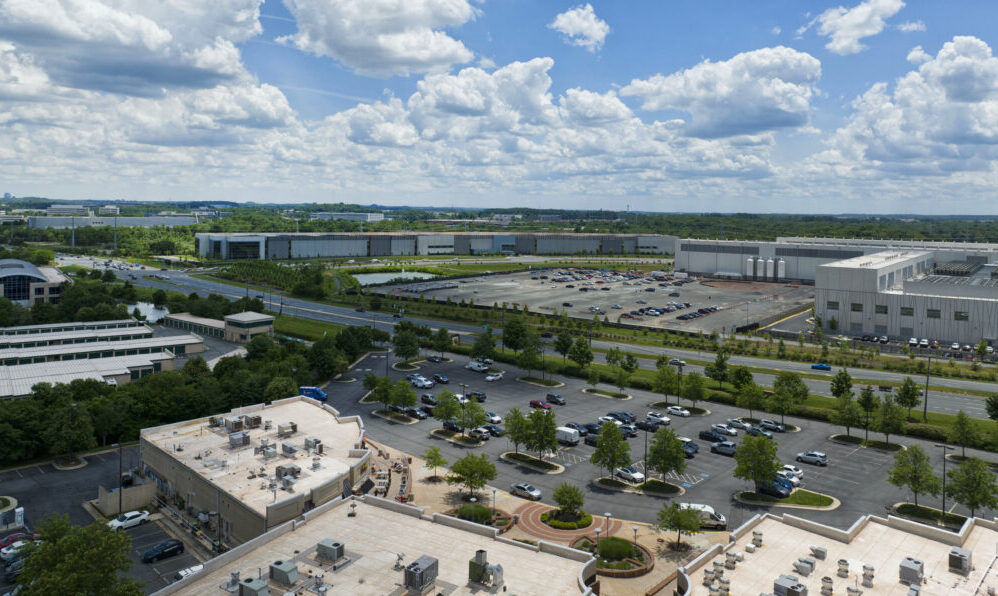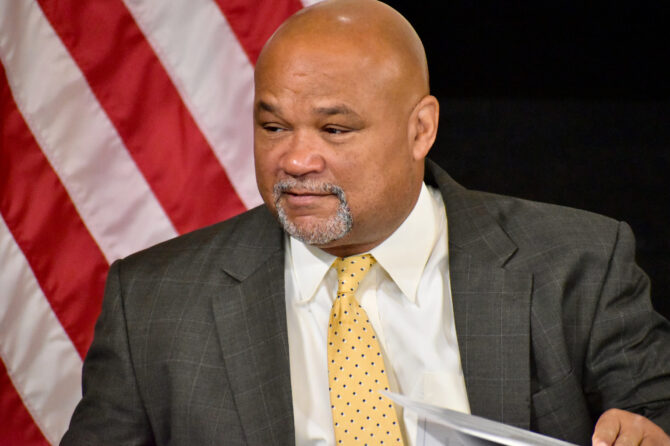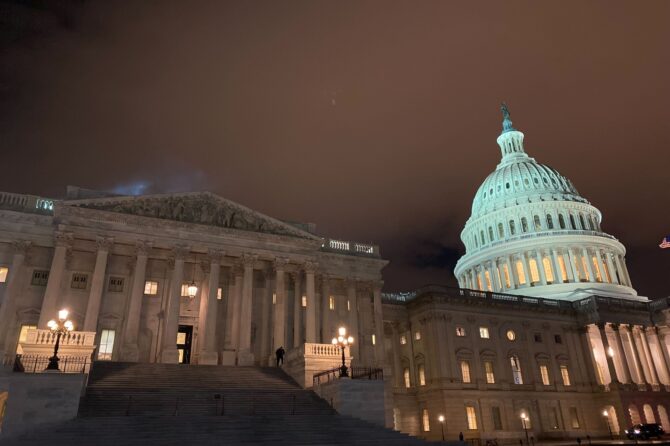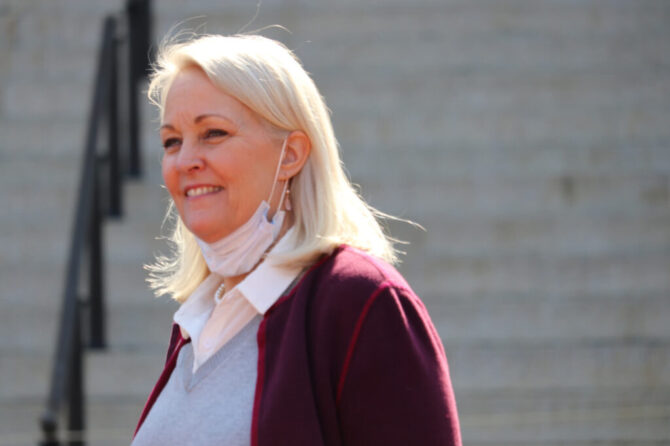MARYLAND MATTERS: The Maryland League of Conservation Voters, Gov. Wes Moore’s closest ally in the state’s environmental community, came out against one of the governor’s top legislative priorities Friday.
In a letter to members of the state Senate, Maryland LCV Executive Director Kim Coble said the green group “regretfully” has decided to oppose Senate Bill 474, legislation from the Moore administration designed to attract large-scale data centers to the state.
“This bill exempts the hundreds of diesel powered back-up generators at high-energy-use facilities from an important regulatory review by the Public Service Commission,” she wrote. “This would result in hundreds, and potentially thousands, of back-up generators continually emitting greenhouse gases as they perform maintenance procedures every month.”
Coble said LCV would use all lawmakers’ votes on the measure as part of its annual legislative scorecard — presenting a potential conundrum to Democrats who enjoy their alliance with environmental groups but also want to be supportive of Moore’s top economic development priority of the General Assembly session.
Several environmental and land conservation groups signaled their opposition to the data center legislation during Senate and House hearings on the bill in late February. They said they were uncomfortable with the centers’ huge use of energy and the challenges that might pose to the electric grid. They did not like the fact that the Moore bill would make it easier for the data centers to use backup generators powered by diesel engines and other fossil fuels, and they also expressed fears about land and water contamination from the giant projects.
The Moore administration introduced the bill as a major data center campus is in the early stages of development at the site of an old Alcoa aluminum plant in Frederick County. The governor was dismayed last year when one of the companies that had planned to be part of the development pulled out of the project after the Public Service Commission refused to agree to an expedited review of the company’s plans to use 168 diesel generators for backup power at the site.
Some environmental leaders testified that they were not opposed in theory to Maryland competing with other states to attract data centers — but felt the legislation did not carry enough safeguards for the climate and made too many concessions to the data center industry.
In her public testimony, Coble expressed many of the same concerns. But it also seemed like she was trying to get to yes.
“We too want more jobs, we want to encourage the tech industry to come to Maryland, we want to build out infrastructure,” she told the Senate Committee on Education, Energy and the Environment at its Feb. 22 hearing. “But we also want to make sure this aligns with the state’s climate goals.”
In accompanying written testimony, LCV laid out seven “amendment concepts” for lawmakers to consider that in the group’s’ view would mitigate many of their concerns about the legislation. But when the Senate panel debated the measure on Thursday, the senators did not take up any of the group’s suggestions for mitigating the climate impacts of data centers — though they did add amendments, at LCV’s suggestion, that clarified some of the provisions in the legislation and including more reporting requirements.
The environmentalists’ skepticism about the bill appeared to be overtaken by the potent combination of business, organized labor and local government officials who came out in support of the measure. The committee vote in favor of Moore’s bill on Thursday was 10-1 — with only Sen. Karen Lewis Young (D-Frederick), whose district does not include the proposed data center campus, in opposition.
It was after the Senate committee vote that LCV decided to oppose the measure.
“Without…any additional provisions to mitigate the impacts of increased emissions, Maryland LCV has no choice but to join the entirety of the environmental community in opposition to SB474, and encourage a red vote on the legislation,” Coble wrote in her letter to senators. “We remain hopeful that a compromise that achieves economic development and supports our climate goals will be reached before final passage.”
LCV’s opposition to the data center bill may carry a greater punch than the criticism of some of its sister environmental organizations, because the group has been so closely identified with Moore since he ran for governor. LCV endorsed him during the crowded and competitive Democratic primary in 2022, and he returned the favor by keynoting the group’s annual fundraisers in 2022 and 2023. Coble has been a featured speaker at several of Moore’s key climate policy announcements.
There are at least a few opportunities to amend the data center legislation further, if lawmakers so choose, before the April 8 close of the General Assembly session. The bill is likely to hit the Senate floor early this week, while the House version of the legislation, House Bill 579, was heard in the Economic Matters Committee and has yet to be voted out.
In addition, Young has introduced a bill, SB 861, that would call for the state to study ways to make data center companies that do business here to commit to reducing their greenhouse gas emissions over a period of time. Young told her colleagues on the Senate Education, Energy and the Environment Committee that when lawmakers passed tax incentives in 2020 to attract data centers to Maryland, “we neglected to tie that incentive to clean energy goals.”
Young said her bill is necessary to ensure there are climate protections and a manageable amount of energy use as more data centers come to Maryland.
“There are good players and there are bad players in the industry,” she said at the bill hearing last Thursday evening, after Moore’s data center bill had been voted out. “I think we all know that if we don’t mandate something, there’s really no way to hold the bad players accountable.”











